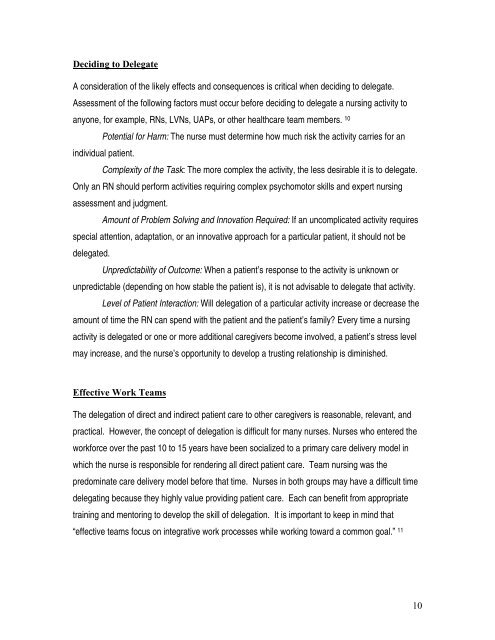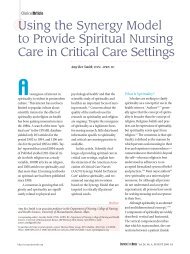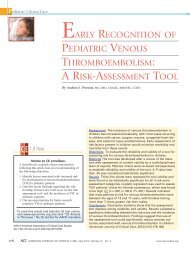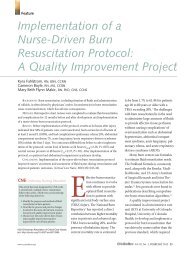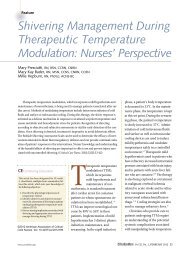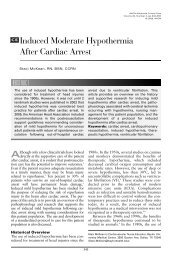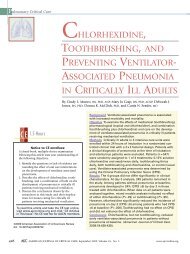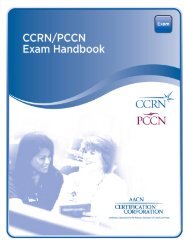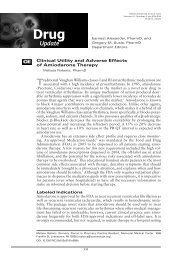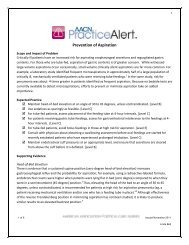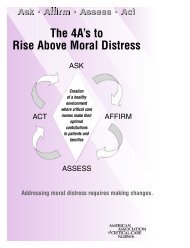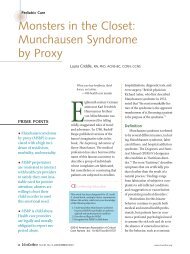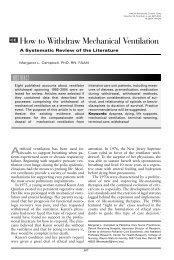AACN Delegation Handbook - American Association of Critical-Care ...
AACN Delegation Handbook - American Association of Critical-Care ...
AACN Delegation Handbook - American Association of Critical-Care ...
You also want an ePaper? Increase the reach of your titles
YUMPU automatically turns print PDFs into web optimized ePapers that Google loves.
Deciding to Delegate<br />
A consideration <strong>of</strong> the likely effects and consequences is critical when deciding to delegate.<br />
Assessment <strong>of</strong> the following factors must occur before deciding to delegate a nursing activity to<br />
anyone, for example, RNs, LVNs, UAPs, or other healthcare team members. 10<br />
Potential for Harm: The nurse must determine how much risk the activity carries for an<br />
individual patient.<br />
Complexity <strong>of</strong> the Task: The more complex the activity, the less desirable it is to delegate.<br />
Only an RN should perform activities requiring complex psychomotor skills and expert nursing<br />
assessment and judgment.<br />
Amount <strong>of</strong> Problem Solving and Innovation Required: If an uncomplicated activity requires<br />
special attention, adaptation, or an innovative approach for a particular patient, it should not be<br />
delegated.<br />
Unpredictability <strong>of</strong> Outcome: When a patient’s response to the activity is unknown or<br />
unpredictable (depending on how stable the patient is), it is not advisable to delegate that activity.<br />
Level <strong>of</strong> Patient Interaction: Will delegation <strong>of</strong> a particular activity increase or decrease the<br />
amount <strong>of</strong> time the RN can spend with the patient and the patient’s family? Every time a nursing<br />
activity is delegated or one or more additional caregivers become involved, a patient’s stress level<br />
may increase, and the nurse’s opportunity to develop a trusting relationship is diminished.<br />
Effective Work Teams<br />
The delegation <strong>of</strong> direct and indirect patient care to other caregivers is reasonable, relevant, and<br />
practical. However, the concept <strong>of</strong> delegation is difficult for many nurses. Nurses who entered the<br />
workforce over the past 10 to 15 years have been socialized to a primary care delivery model in<br />
which the nurse is responsible for rendering all direct patient care. Team nursing was the<br />
predominate care delivery model before that time. Nurses in both groups may have a difficult time<br />
delegating because they highly value providing patient care. Each can benefit from appropriate<br />
training and mentoring to develop the skill <strong>of</strong> delegation. It is important to keep in mind that<br />
“effective teams focus on integrative work processes while working toward a common goal.” 11<br />
10


